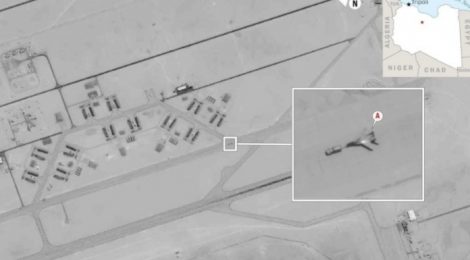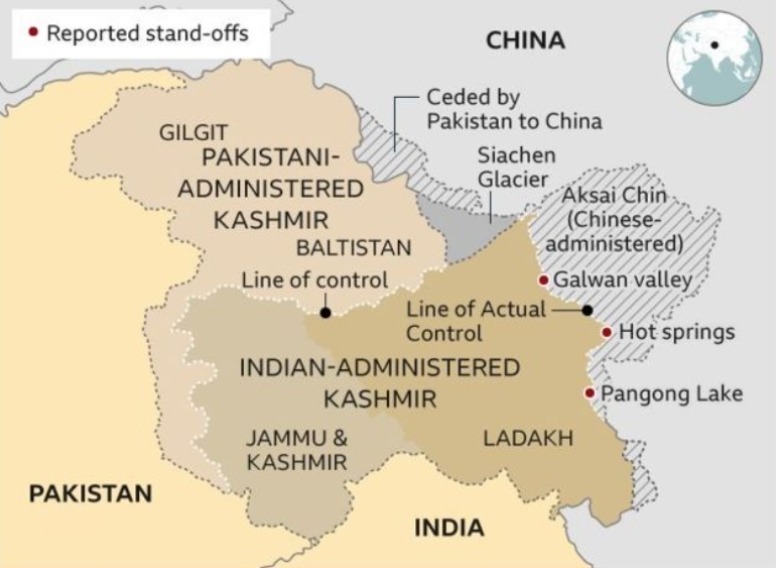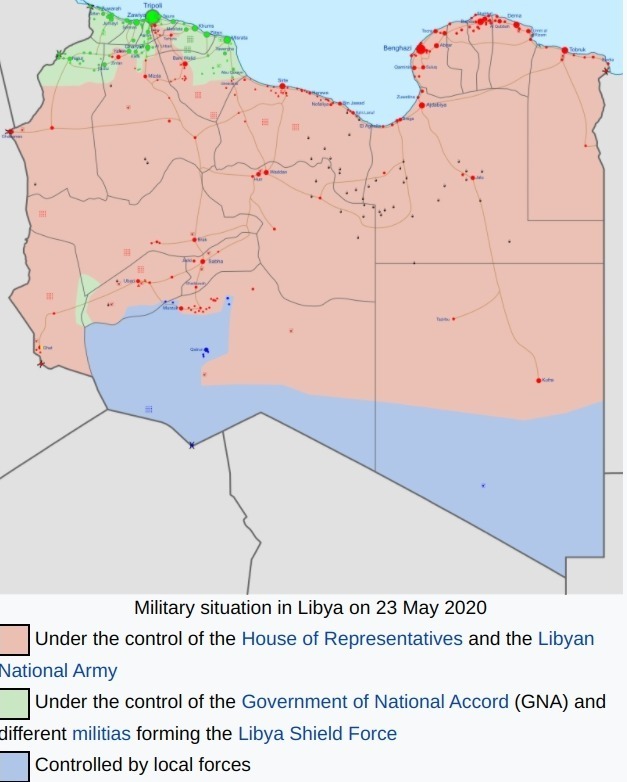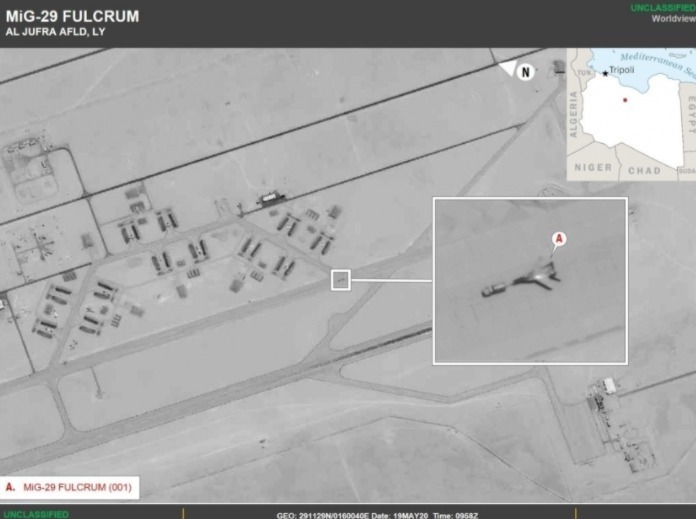
War and Conflict Updates: India vs. China, and Russia and Turkey in the Libyan War
War and Conflict Updates: India vs. China, and Russian and Turkish Involvement in the Libyan War
Amid the continuing tragedy of the COVID pandemic and the resulting economic global turmoil, (and both the political and racial turmoil in the United States), significant military and geopolitical events are still taking place in the world.
Two particularly concerning pieces of news came out this week regarding an ongoing border dispute between India and China, and also in Libya, where the civil war is heating up and the foreign intervention there is showing troubling signs of escalation.
First, the border clash between India and China. As border clashes between two large militaries go, it was not much. Earlier in May, 2020, several hundred Chinese and Indian troops engaged in what could be described as a brawl; fistfights, rocks being thrown, that sort of thing. This was near the point where India, China, and Sikkim meet. Both sides reported injuries to their soldiers, but no shots were fired. This type of physical clash has happened several times over the years, but no shots have been fired. Now, in late May, we have reports of a large build-up of Chinese troops (thousands, according to Indian sources) in a disputed part of Kashmir. Kashmir is divided between Pakistan, India, and China, and, while the Pakistan-Indian conflict over this region is frequently violent and grabs all the headlines, the much quieter dispute over where the border between India and China is also in contention.
Map Source: https://www.bbc.com/news/world-asia-52852509
India claims that the Chinese have moved troops and equipment into the border region on the Indian side of the border. This fits a pattern of behavior by the People’s Republic of China in recent years. In the South-China Sea, Chinese forces have moved into disputed islands also claimed by Vietnam, the Philippines, and other nearby nations. Recently, there was a minor clash between Chinese and Vietnamese boats in that area.
India and China fought a brief border war in 1962, and despite the ongoing border dispute, there have been no reported shots fired on that border since 1962. Keep in mind though, that China is in muscle-flexing mode in many theaters, and India is run by a more nationalistic set of politicians right now. If either nation decides to up the ante, things could get messy. Add to this the fact that both nations have very large and modern military forces, and, both possess nuclear weapons, and there is real cause for concern if things go south. Also remember, that China and Pakistan are long-time allies. If a war does break out, Pakistan may feel emboldened to do something about their claim to Kashmir. India and the United States also have strong connections, and the U.S. under President Trump has taken a more aggressive stance toward China diplomatically, economically, and militarily.
Now let’s look at Libya and the increasing Russian involvement there. Libya is embroiled in a civil war that right now pits two competing governments against each other. The Tripoli-based Government of National Accord (GNA) government is recognized by the United Nations, and is strongly supported by Qatar and Turkey, which has troops on the ground, and is operating a large and very effective drone force in the war. The rival Libyan government is the House of Representatives, based in Tobruk. The military force of the Tobruk government is the Libyan National Army (LNA), led by General Khalifa Haftar. The LNA is backed by the United Arab Emirates (UAE), Saudi Arabia, Egypt, and Russia. The UAE also operates an effective drone force in Libya, and Russian mercenaries, from the Wagner Group (a military contractor company with very strong connections to Vladimir Putin’s government) has several thousand troops in Libya. The LNA and the Wagner Group recently suffered several defeats, largely due to the effectiveness of the Turkish drone force.
Map Source: https://en.wikipedia.org/wiki/Libyan_Civil_War_(2014%E2%80%93present)
In late May, the United States military (which launches occasional strikes against al-Qaida and Islamic State forces in Libya, and generally supports the GNA), made public photos of Russian warplanes being transferred from bases in Russia to the LNA forces in Libya. Reportedly, these planes first stopped off at Russian bases in Syria to have their Russian Air Force markings removed. These planes reportedly will be flown by Russian pilots belonging to the Wagner Group. So here we have the Russian government transferring Russian Air Force planes to the hands of a Russian mercenary company in Libya, where Russian mercenary pilots will fly them.
This is a strong escalation in Russian involvement in Libya. It should also be pointed out that Turkey’s use of their drones is largely responsible for the GNA forces pushing the LNA away from Tripoli, leading to an airlift evacuation of some 1,500 Russian mercenary troops out of harm’s way. Sending the planes to Libya and transferring them to non-Red Army forces is a disingenuous way for Vladimir Putin to have a hand in the Libyan War while also saying that Russia is not actually involved. Russia has a long history in Libya, going back to the dictatorship of Muammar Khadaffy, who allied himself with the old Soviet Union, and armed his forces with Soviet equipment and sent his officers to Russia for training. In fact, General Haftar, of the LNA, spent three years in the Soviet Union getting advanced military training. To be fair, though it should also be pointed out that after his involvement in a failed coup plot against Khadaffy, Hafter fled to the United States, where he lived for 20 years and became a naturalized American citizen.
Turkey is also deeply involved in the Syrian Civil War, where their drone forces have been used to great effect on Syrian forces, who are backed, of course, by Russian military forces. If the situation in Libya becomes more of a Turkey-Russia confrontation, that could spill over into Syria (and vice versa) and may lead to a wider conflict. Remember, despite some U.S.-Turkish tension over support for rival Syrian rebel groups, Turkey and the U.S. are both members of the NATO alliance.
Hopefully, cool heads prevail in both the India-China situation and in Libya and in Syria, where Turkish forces recently launched another retaliatory strike in Syrian forces as the month of May, 2020 draws to a close.
Sources:
https://www.dvidshub.net/image/6220925/russia-deploys-military-fighter-aircraft-libya



